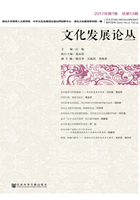
Chinese Ritual System: Challenges and Countermeasures
Abstract: Confucian civilization of rites and music is based on Chinese traditional ritual system aiming at adjusting and regulating every kind of social relations, which has become the core contents of political thoughts of rulers in the passing dynasties because of their instinctive characteristics of apotheosis and legalization. The essence of thought, such as the benevolent love to others, as well as a saint from within and a king from without, has really played a long and important role in the unification of the country, ethnic fusion, stability of social orders and harmoniousness of interpersonal relationship. However, the ideological preaching of the emperor-subject and father-son relationships, and the so-called Three Cardinal Guides and Five Constant Virtues have become the yoke of thought, and delayed the transformation of China into a modernized society. The self-innovation of Confucianism from Tang and Song Dynasties, the conflict and fusion of Chinese and Western civilizations in the passing 100 years and the grand expectation of Chinese revival, propose challenges and tests to the theoretical development, the old -to -new transition and the present countermeasures of Chinese ritual system. In order to keep consistent with the common development target that the whole human society steps into market economy, democracy and the rule of law, the traditional ritual system should have its modernized transition, which is a must to refill its vitalities so as to serve the reality. This kind of transition should advocate the concept of rational practice, keep the standpoint of seeking common points while reserving differences, emphasize the advocacy of institutional construction, and embrace the mind of keeping pace with the times. Only by doing so can we realize the inheritance and reform of Chinese ritual system under the social core values, manifesting its modern values.
Keywords: Ritual System, Civilization of Rites and Music, Ethical Ideas, Alien Civilization, Modern Values
About the Author: Ge Jinfang(1946-), Professor in School of History and Culture, Hubei University, “985”Distinguished Professor of Beijing Normal University, and Part-time Researcher in Research Institute of Southern Song Study, Hangzhou Academy of Social Science. Research interests and specialties: economic history in Song Dynasty. Academic essays: academic essays have been published in many famous or authoritative journals like Study of History, Study of Chinese History, Study of Sociology, Study of Ethnics, Study of Chinese History of Economy, Zhonghua Wenshi Luncong, Guangming Daily, etc., many of which were reprinted by Xinhua Digest and the Information Center for Social Science, RUC. Magnum opuses:17 academic books have been published, including Research and Analysis of Economy in Song, Liao, Jin and Xia Dynasties, Records of Land, Tax and Corvee, General History of Chinese Economy(Vol. 5), The Study of Transition between Tang and Song, The History of Handicrafts in the Southern Song, Research on Society and Economy of Song Dynasty, and Historical Comments on the Country Economic System in Pre-modern China. E-mail: ge0219@126.com.